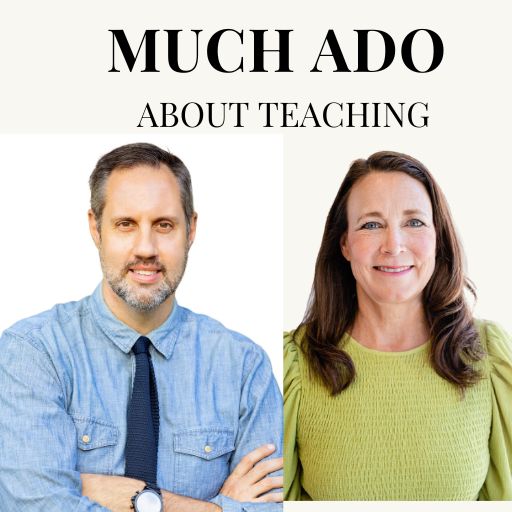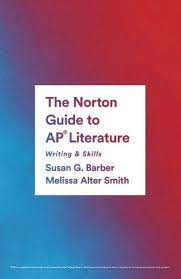Much of the real work of writing is done in the revision stage, but getting student buy-in can be challenging. Since I only teach AP Lit, my students are primarily writing timed essays which is a quick pass at literary analysis, but the far majority of writing is not done in a timed setting. In addition to teaching my students to write a strong initial timed writing, a goal is to help students learn to self-assess and revise their writing; this skill will benefit them in all types of writing. Students are also too dependent on me for feedback and primarily want to make changes to increase their grade. I want more student ownership with writing and for students to be able to review and revise work as confident writers. Over time, my post-writing process has grown to include three main components: revision, metacognition/reflection, and writing conferences. This is how each works: (Links to all of the resources are at the end of the post).
1 – Revision
Revision is simply a way to revisit or “resee” a prior piece of writing and make changes after thoughtful consideration. Revision is not proofreading; this is worth a conversation with students pointing out that proofreading is the final stage of the writing process. Revision offers an opportunity to consider structure of the entire piece as well as work at the paragraph and sentence level. Students always have the option to revise writing in E216.
However, many students don’t take advantage of this process thus missing out on revision. As a result, I decided to make revision an assignment at least once (but usually more often) each term. The first revision assignment is “The Worst Paragraph Revision” (an assignment adapted from my AP Lang friend Kate Carter). This can be done individually or with a partner; I typically do one of each the first semester. I like this assignment because students can learn how to revise without feeling overwhelmed since the focus is at the paragraph level. As students grow in their confidence, they can move to the full FRQ Self-Analysis. The AP Lang teachers and I (Lit) use this as a summative grade which forces students to think through their writing. We’ve found this type of work benefits writers of all levels.
2 – Metacognition/Reflection
Another important piece for writing is metacognition or taking time to think about both the process and the product. While revision focuses on improving a piece, metacognition is more reflective including parts of the essay that are strong as well as parts that need work. Here are some common questions used for metacognitive thinking on writing in my classroom which can be assigned through a Google form or a Google doc.
- What do you like best about this writing? Why do you think this section is strong? What did you notice as you were writing this section?
- Where did you struggle with this piece? Why did you struggle with this section? How did you feel while you were writing this section? What could have helped you while writing this particular section? Let’s review your list of troubleshooting ideas and strategies. What can you add to these?
- Where is an area you took a risk or experimented with something new? Why did you decide to do something different here? Was it successful? Why or why not? If so, how could you incorporate this into other writing?
- How do you feel about the piece overall? How did you feel about the overall process? How do you see yourself growing as a writer? Are there particular things in your learning environment or mindset that contribute to successful writing? Identify one or two concrete strategies to use moving forward.
3 – Writing conferences
The final component of post-writing work is the writing conference. I’m getting set for writing conferences this week over writing from our first term. Students will be reading a choice novella and working on their first poetry blog which gives me time to talk to each student in my office (the hall). I feel like it’s important at this time of year for a check in on not just their writing but also how they’re feeling about the class and senior year in general. Writing conferences are typically 5 – 8 minutes and students come prepared for the conference by answering the following questions:
- What do you like best about this writing?
- Where are you struggling with this essay?
- What do you notice when you read your paper aloud?
- What is ONE thing can I help you with?
- What mentor texts could you consult?
Having students prepare ahead of time is crucial for students to own their writing and feel empowered as a writer. The pre-work also helps conferences stay within the time allotment. Students are always welcome to come before or after school for writing conferences, but so few take advantage of this opportunity. While getting through all of my students will take a couple of class periods, I’ve found the use of time for a fall and spring writing conference to be highly beneficial.
The three post-writing activities have taken my students’ writing to another level. You can find all of the resources bundled here to take and use in your classes.
Post Writing Activities: What To Do After Returning The Essay
(This includes the Worst Paragraph Revision self-assessment and peer assessment docs, FRQ Full Essay Self-Assessment, two Google forms reflections to help students elevate writing, and pre-conference writing questions).

Susan Barber teaches AP Lit and Writers Workshop/Advanced Composition at Midtown High School in Atlanta, Georgia and serves as the College Board Advisor for AP Lit. In addition to reading, writing, and investing in the next generation, she loves watching college football with her family especially whe












